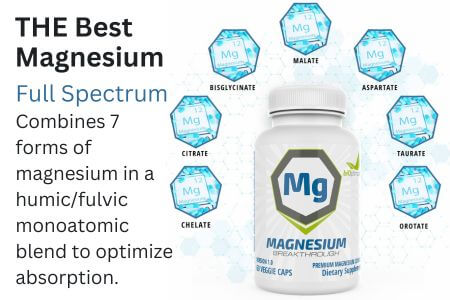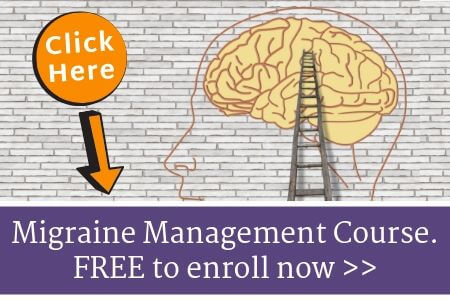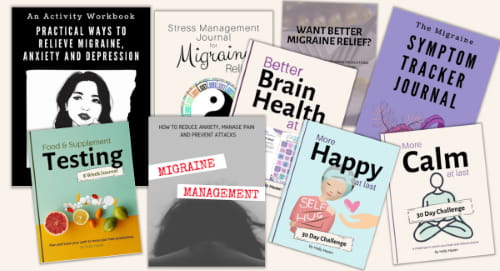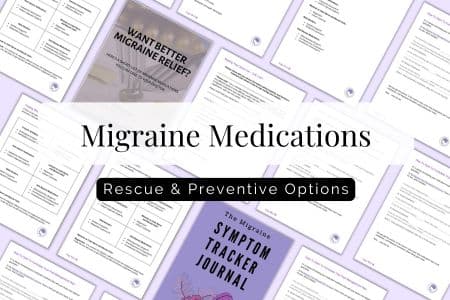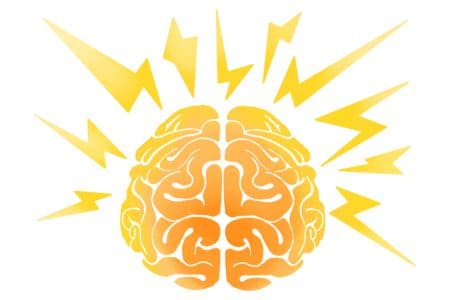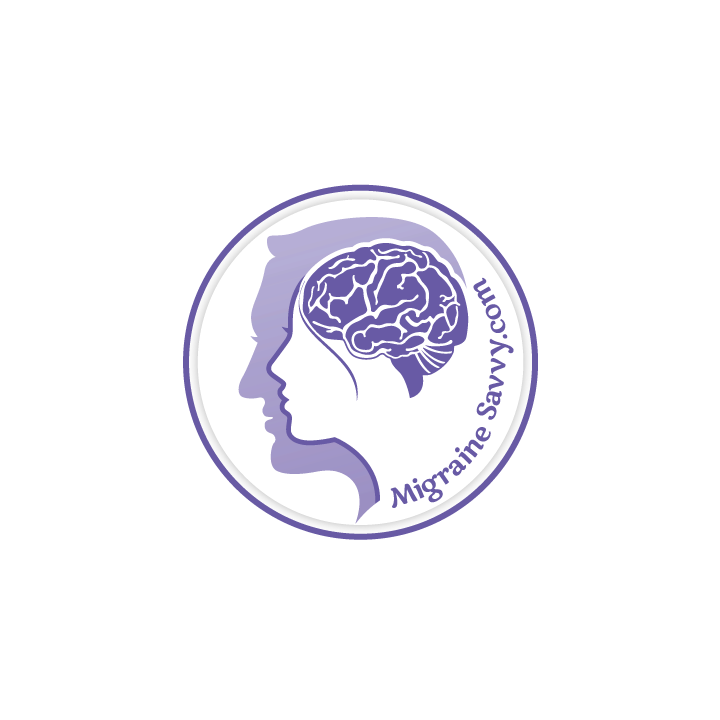- Home
- Medications
- Migraine Pain Medication
Migraine Pain Medication: How To Endure Trial and Error
Finding the right migraine pain medication can be elusive. It can take years to find what works. Sorry to be the bearer of bad news.
As you are not alone in this quest... here's my rather long list of the many medications that didn't work for me and the side effects I experienced.
But persevere, you can use this list to take to your doctor for a good place to get started too... so it's not all doom and gloom.

Don't sabotage your chances at living a pain free life because one thing doesn't work... or two... or three. Everybody's body is different. Keep going until you find what works and I am here to remind you that you can. You just need the time to learn about all the options available to you.
There is more hope now for effective treatment than ever before in history. Researchers are able to develop solutions much faster than ever before with today's technology. However, we are still waiting for a cure. Migraines teach us patience and tolerance on many levels – that’s for sure.
So never lose hope and never give up. Persevere. You will find something that works, or at least something that will help you manage the pain just a little better.
Let's take a look at what's available now for pain relief.
My #1 Choice in Magnesium Supplementation
The First Migraine Pain Medication Everybody Tries
Over the counter (OTC) migraine pain medication
OTC means you don't need a prescription for: Aspirin, Advil, Panadol (paracetamol), Tylenol, Mersyndol. None of these worked for me. Why? Note this first lesson - do not take headache tablets for migraines.
Ibuprofen is preferable for migraines and remember migraines are not headaches. Read migraine vs headache to see why you should not take headache tablets alone to tackle a migraine.
Don't use OTC headache tablets to try to abort a full fledged migraine attack.
The First Line of Proper Treatment
Sandomigran® (pizotifen malate) - is a competitive serotonin antagonist, antihistamine and some other things I cannot pronounce. It is used as a prophylactic treatment only, not for the acute phase. This was the first drug I was given. I was told "it's just like aspirin", but it had no effect on the migraines. And so the journey to find effective migraine pain medication began.
To control other migraine symptoms, your doctor will often suggest taking a preventative along with an anti-nausea tablet.
Stemetil® (prochlorperazine) – this is commonly used as an anti-nausea tablet in low dose form but in higher doses it is also used for psychiatric illnesses. It works by blocking the dopamine receptors in the brain. I ended up in hospital on this one. Allergic reaction they told me.
So much for controlling my new psychotic condition caused by too many migraines – OK now I am joking. But I did feel like I was going crazy on many occasions.
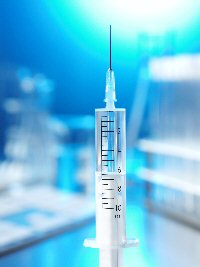 What will that do to me?
What will that do to me?
I have a confession. I am terrified of needles.
So, it's taking me awhile to get around to having Botox.
I fainted getting my ears pierced.
And I am afraid to take a migraine pain medication when I don't know what it will do to me.
Luckily, I have only woken up in hospital once.
Here's what I tried next... that failed.
Betaloc® – is a beta-adrenergic blocking agent.
Codeine® - is in a group of drugs called narcotic pain medicines. It is commonly used to treat mild to moderately severe pain and it is addictive. It did absolutely nothing for pain reduction on its own, so I stopped taking the ibuprofen with codeine in it to reduce constipation. My doctor, at the time, suggested I try it separately, and she was right.
Test codeine separately to see if it provides pain relief. If not... don't take it.
Prothiaden® (dosulepin) - also called Dothiepin, Dothep, Thaden and Dopress. It is an antidepressant. Dosulepin is said to work by preventing serotonin and noradrenaline from being reabsorbed back into the nerve cells in your brain. Although it is supposed to help relieve depression – I developed suicidal thoughts and had very graphic and horrific nightmares. I lasted one week on this drug.
Inderal® (propranolol hydrochloride) - this is also known as Betaloc. I did not have a failed list back then, so it turned out that I tried the same drugs twice as they had different names in different countries. It is used to treat high blood pressure and as I have low blood pressure I got quite ill on this migraine pain medication.
Keep a list of failed medications and check online for the different names.
Periactin® (cyproheptadine) – is an antihistamine. I never quite figured out why antihistamines had anything to do with migraines, but I took it anyway. I experienced suicidal thoughts on this migraine pain medication too, so I did not last long. I think I endured the nightmares for 6 weeks, at my doctors insistence. She was tired of me giving up on the previous meds.
Sumatriptan (sumatriptan succinate) - also called Imitrex®, Imigran® – is a triptan and comes under the class of drugs called selective serotonin receptor agonists. It is used for migraines and cluster headaches. There were only oral tablets when I tried this, no nasal spray, but I felt like I was having a heart attack. I did feel great after wards though, no hangover effect afterwards like I often get. The heart attack like side effects scared me half to death, so I had to let go of the euphoric after effects.
Zolmitriptan - also called Zomig® - is a triptan and comes under the class of drugs called selective serotonin receptor agonists, this one targets "the 1B and 1D subtypes." It is used for acute migraine treatment. It also felt too strong for me, in that the side effects were like a heart attack. And it took me about three days to recover.
Rizatriptan – also called Maxalt® – I recently (2011) tried these lovely peppermint wafers that dissolve on the tongue. I loved the idea of not having to eat food (at 4 am) with the tablet. I loved that it felt like I did not take a tablet at all.
However, the abortive power did not last long enough and I had to take more than felt right. It was still within the limits, but I had to take it more often than the Naramig I was already on.
I did persevere for 3 migraines, doctor orders, but developed a vomiting cycle. The chemist (pharmacist) actually mentioned to return to the Naramig so as not to strengthen the new vomiting cycle into a habit for the body.
Medications that don't abort your attacks effectively can set up other cycles and symptoms.
The 2 Top Herbs For Migraine Pain Relief
Feverfew (tanacetum parthenium) – is "a member of the
sunflower family, has been used for centuries in European folk medicine
as a remedy for headaches, arthritis, and fevers." Feverfew is
widely used around the globe to treat migraine headaches.
I drank the tea and tried the capsules, but both times my tongue and chin swelled. I persevered for a month with no reduction in migraines and ignored the allergic reaction as long as I could. Alas, I could no longer try this natural remedy. So I returned to my reliable migraine pain medication once more. I've written more about feverfew here.
Butterbur – (petasites frigidus, petasites hybridus, or petasites japonicus)
Also called: blatterdock , bog rhubarb , bogshorns , butter-dock ,
butterfly dock , coltsfoot , exwort , fuki (in Japanese),
pestilence-wort , pestwurz (in German), petadolex , petaforce , and
tesalin.
There are numerous clinical trials now that
have shown significant reduction of migraines with using butterbur. This is now a
widely used natural migraine pain medication.
Some adverse reactions reported are: gastrointestinal symptoms and reduced
testosterone production. I was not aware of any
adverse reactions at the time, but I did have low hormone levels. There
is also something else to be aware of with butterbur and I will quote:
"Pyrrolizidine alkaloids found in butterbur are known liver toxins with carcinogenic and mutagenic potential. Commercial dosage forms must be free of hepatotoxic pyrrolizidine alkaloids." So, make sure you get a standardized form - the brand I recommend is below.
I took these doses: 1 x 500 mgs (day one), 2 x 250 mgs (day two – split dose), and then 2 times per day x 75 mgs on a maintenance dose for 18 months. I did have a significant reduction in intensity and reduced occurrence looking back at my records. After 1 year my migraines reduced to 13 days per month, which was down from 22. I went another six months and stopped.
Here Are My Top 3 Recommendations:
As an Amazon Associate, I earn from qualifying purchases - affiliate-disclosure.
- New Chapter Ginger Supplement - Ginger Force with Organic Ginger – Organic and highly effective.
- Butterbur (Enzymatic Therapy Petadolex) – A natural option for prevention.
- Feverfew (White Willow) – Known for reducing migraine frequency.
What to test after herbal pain relief fails dismally...
Tricyclic Antidepressant, Cox-Enzyme Inhibitors and an Anticonvulsant
Endep® – (amitriptyline) - also called Elavil, Vanatrip - is a
tricyclic antidepressant that has also been used as a Migraine treatment
for many years now. In fact it was one of the first medications
recognized as a potential migraine prophylactic or preventive. I felt
like my head was in a clear plastic bubble on this migraine pain
medication.
It was like I could see everything, but I could not feel anything or connect to anyone. I persevered on this tablet too, for about 6 months until I got so depressed my doctor took me off it. I recall weaning off ever so slowly, and feeling better and better each day. This one was not for me.
Celebrex® (celecoxib) – is in a class of drugs called
non-steroidal anti-inflammatory drugs (NSAIDs). It is also widely used
as a migraine pain medication. It is a “Cox-Enzyme Inhibitor” used to
reduce pain, fever, inflammation, and stiffness caused by osteoarthritis
and rheumatoid arthritis.
Vioxx® (rofecoxib) – was approved by the FDA on Apr 1, 2004 as the first and only COX-2 specific inhibitor migraine pain medication for acute treatment of migraine headache in adults. Are you bored yet? I did say it could take some time to find what works.
Epilim® (sodium valproate) - is an anticonvulsant widely used for
treating epilepsy. It was given to me as a preventive but after
reading all the side effects and the fact that only Panadol can
accompany it, which does nothing for my pain levels, and the weight gain
turned me off totally. I did not need to add more problems to the mix.
Needless to say, the side effects sounded worse than just suffering with this pain that I was now familiar with and had a plan developed. My doctor prescribed 400 mgs per day for me, and after a short trial I gave up once again. I was completely and utterly deflated.
If all these medications don't work then...
Surely A More Natural Approach Would Work... Right?
Vitamins, minerals and bio-identical hormones
I took vitamin B2 tablets (400 mgs per day) until my skin turned orange.
I used bio-identical progesterone cream for ten years. As some migraines are from dropped estrogen levels, the doctor highly recommend this instead of migraine pain medication. Initially the migraines reduced from 30 out of 40 days, to 22 out of 30 days.
I had vitamin B2 and B Dose Forte injections in the bum for 18 months –
ouch! It left bruises and lumps formed on my buttocks (too much?) with
no change in my migraines. Emotionally I felt better and I felt
more energetic for 3 days after the injections. I guess I needed the
vitamins.
I also tried: magnesium pump injections for 18 months with no reduction whatsoever; 5 HTP – nothing; and SAM-e which was very good for depression but there was no noticeable change in my migraine pattern.
I highly recommend trying SAM-e or methionine powder if you are feeling depressed, after checking with your doctor that is. I like this brand - SAMe.
And magnesium... magnesium is the most noted mineral to be deficient in migraine sufferers. The most effective form to take is glycinate.
P.S. Try this full spectrum magnesium... I LOVE it
My #1. Magnesium Breakthrough by BiOptimizers – combines 7 types of magnesium in a humic/fulvic monoatomic blend to optimize absorption. This is by far the best product I have found so far in terms of results.
Have You Checked Your Thyroid?
I got diagnosed with hypothyroid which can cause a number of problems and symptoms including migraine.
I bounced around from the synthetic Oroxine to the natural thyroid extract. It took years to find the right dose for the natural approach, and after years of testing and trials I decided on the cheapest version that doesn't require specialists doctors.
One thing I noticed instantly was the my deep depression vanished overnight. And my migraine attacks reduced by half (13 days down to 7) however, this did not last long. Even when I found the right dose, my attacks persisted. My 22 days a month returned.
I've also tried many other things that reduced my attacks temporarily... but it was never maintained.
The trials for all of this were as relentless as the attacks.
What Did Finally Work For Me
Naramig (2.5 mgs) and Ibuprofen (400 mgs)
I had no effective pain relief for over 14 years until I found Naratriptan - aka Naramig.
It was recommended by a client of mine at the time (not a doctor!). She was using it from back surgery and swore by it for pain relief.
Once I started this migraine pain medication, I slowly got my life back.
You never know where the answer will come from... it might not be your doctor!
Enduring Trial and Error
So you see, I have also had to endure trial and error when it
comes to migraine pain medication. And I tell you all this in detail in
the hope that it might help you persevere and find hope to find your
best possible case scenario with these debilitating life altering
migraines.
Whatever migraine pain medication you can find, alternative or synthetic that works for you is worth time and effort. It's your life after all and you want to live it.
Having chronic migraines can teach us patience, tolerance and compassion on so many levels. And you will need new coping tools for this journey...
- Keep a diary to learn your migraine pattern
- Find a good doctor you can work with
- Be kind and gentle with yourself
- Keep good records
- Plan ahead for your next attack - have everything you need in once place... be prepared.
Never leave home without your medications!
How I Can Help Right Now
I have a step by step pain management plan with a few different plans for you to take to your doctor and work through finding the right migraine pain medication.
You should be able to discover what works for you in a fraction of the time I did. Plus, if you haven't tried any of the triptans I suggest you consult with your doctor to see if it's an option for you.
Ready to take the next step?
Choose the next step that fits where you are right now.
MIGRAINE MEDICATIONS Related Articles
Migraine Pain Medication References:
1. Butterbur (2009) [Online], Available at: http://www.drugs.com/npp/butterbur.html Accessed June 12, 2016 - updated 2018.
2. Better Health Victoria Government Australia (2015) Sandomigran [Online], available at: https://www.betterhealth.vic.gov.au/~/media/bhc/files/medicine%20guides%20import/05/cmi5824.pdf Accessed June 12, 2016.
3. Net Doctor (2014) Stemetil [Online], Available at: http://www.netdoctor.co.uk/cancer/medicines/stemetil.html Accessed June 12, 2016 - updated 2018.
4. Robert, T (2016) About.com Celebrex [Online], Available at: https://www.verywell.com/celebrex-as-a-migraine-treatment-and-why-its-unique-1719704 Accessed June 12, 2016.
5. University of Maryland Medical Center (2015) Feverfew [Online], Available at: http://www.umm.edu/altmed/articles/feverfew-000243.htm Accessed June 12, 2016.
6. Vioxx (2004) [Online], Available at: http://www.drugs.com/news/fda-approves-vioxx-acute-migraine-adults-3473.html Accessed June 12, 2016 - updated 2018.
